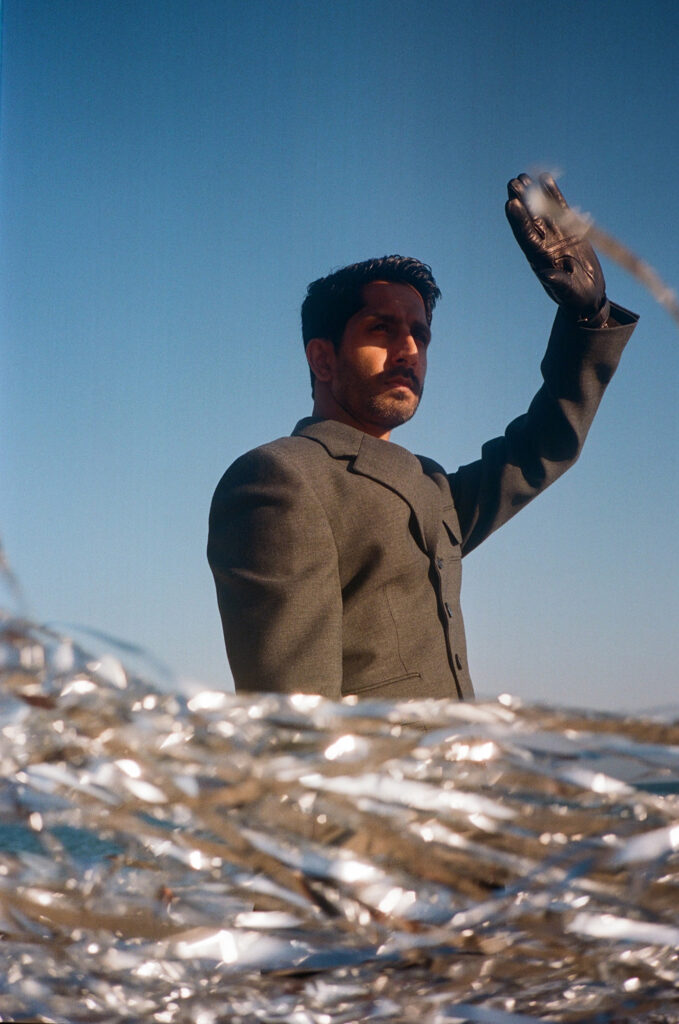
SAGAR RADIA
stars
in
HBOMAX series
INDUSTRY
Photography | Dane Voughn
Creative Director | Deborah Ferguson
Interview by Laasya Gadiyaram
Starring in season three of HBO’s Industry, Sagar Radia is quickly becoming a standout. With his captivating performances and commitment to authentic storytelling, Radia takes his character, Rishi, to new heights in the episode “White Mischief.” His journey from London’s theater scene to television stardom highlights his talent and dedication, positioning him as a rising force and an inspiration for underrepresented actors in the industry.
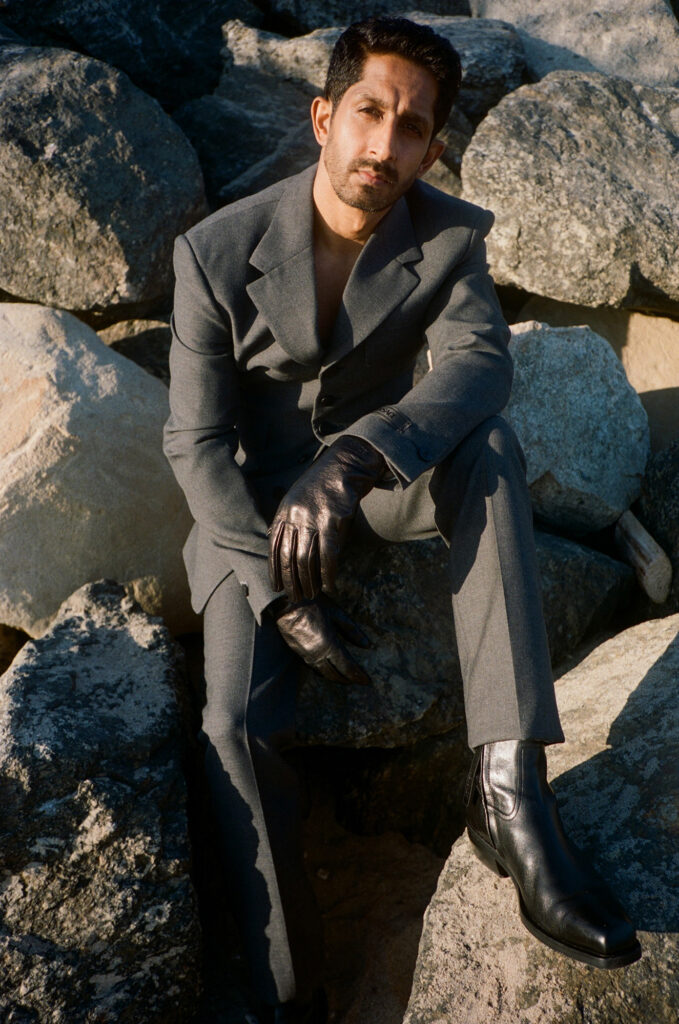
Suit, Gloves, Boots : VERSACE F25
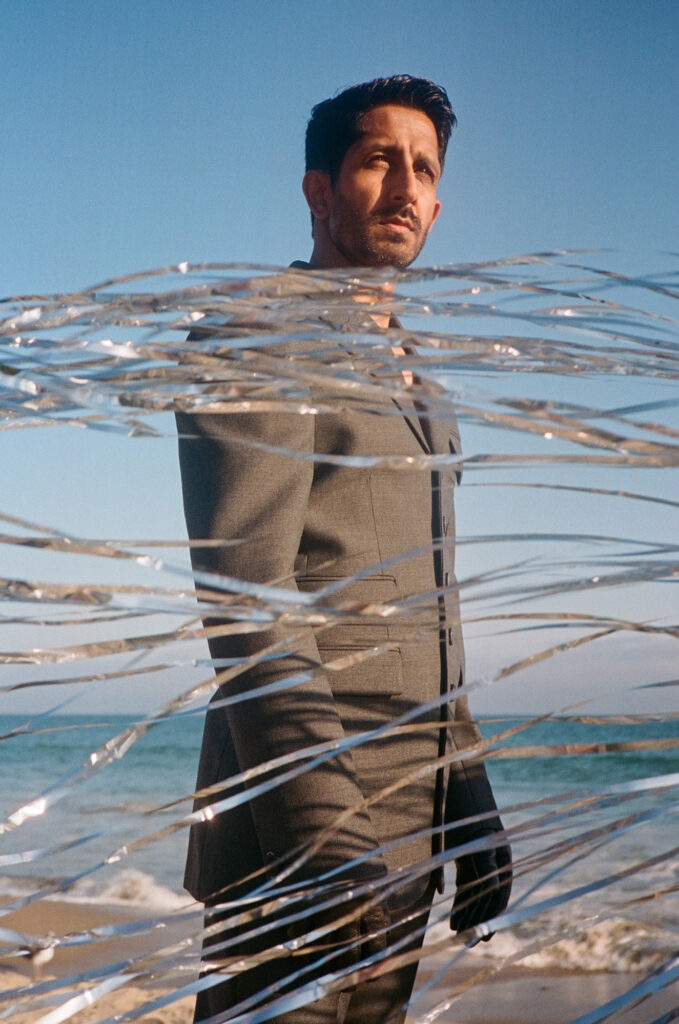
How did you approach developing Rishi as a character?
I think developing Rishi came in stages for me. When you break it down season by season, I’m learning and understanding Rishi at the same pace the audience are. The writers of our show are revealing things to me page by page so in that sense it’s an ongoing process of development. It’s one of the main differences between working on television compared to film. Season 1 Rishi is a character on the floor who represents the world of Pierpoint/banking/trading floor when the graduates embark on this journey. Rishi was there to fill in the gaps. For me, it was finding an energy and attitude that I could tap into whenever we were on the trading floor. Honestly speaking, there wasn’t a drastic amount to work with in terms of words on the page so I was given the freedom to be the type of Rishi I wanted to be and thankfully Mickey and Konrad responded to that. I would watch films like Margin Call and The Big Short and take bits from various characters to formulate my version of someone similar. What Jeremy Strong did in The Big Short was a big inspiration because he was Steve Carrell’s right-hand man and executor and I wanted to build that demeanor and gravitas with Rishi. Season 2 and 3 Rishi we got to see a little more of him and different facets of him. So, the development of Rishi by then was about painting a first and second coat to a base layer we had prepared in season 1.
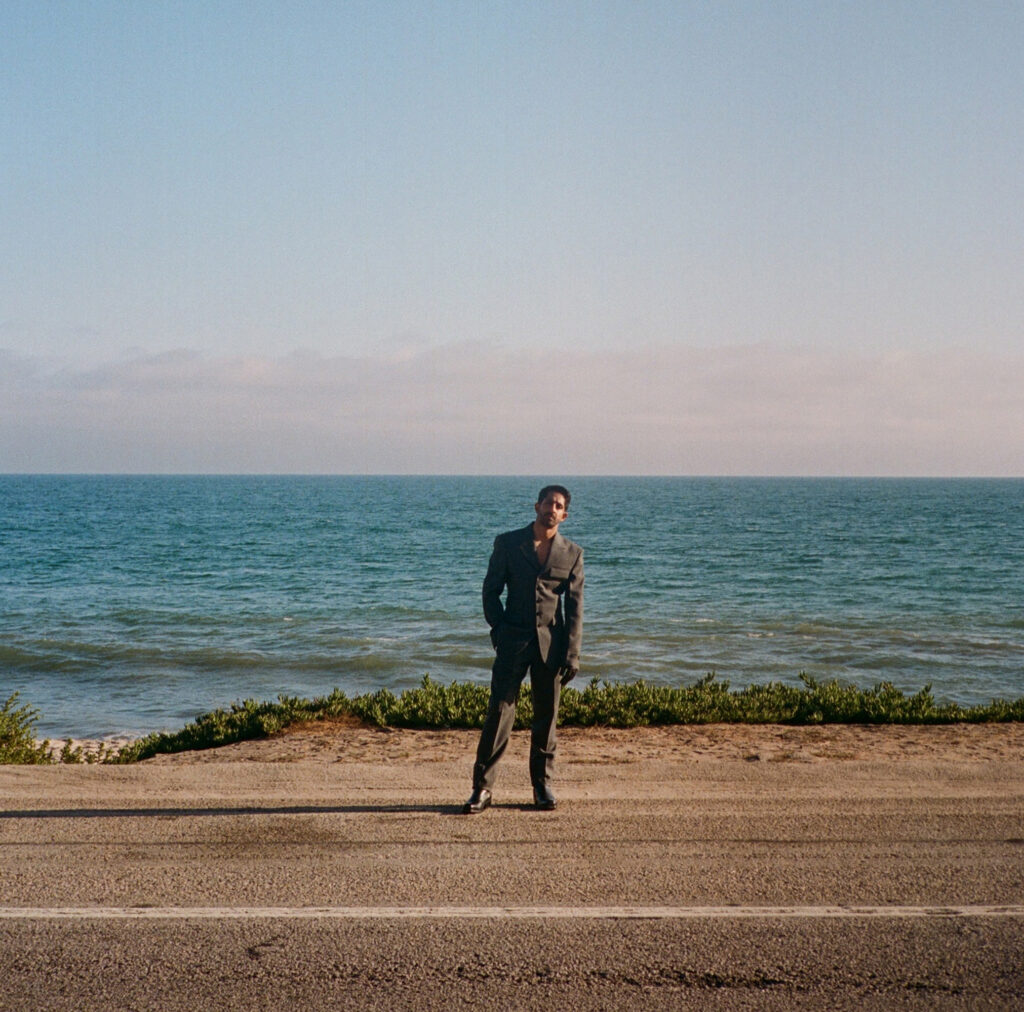
Suit, Gloves, Boots: VERSACE F25
In “White Mischief” we follow Rishi on a terribly bad day. How do you think this episode provides more insight into Rishi as a character?
Through sheer on-screen presence Rishi appears across every scene of the episode so we get a chance to see his journey, and so by proxy we learn more about who he is, what motivates him, why he’s behaving a certain way. We see a more three-dimensional character instead of the funny one liners and background dialogue we were used to hearing in season 1 and 2. Having the opportunity to follow him over a 48-hour period meant we saw him away from the trading floor. At home with his wife, with an old school friend, with family. Yes – this provides more insight into Rishi but deeper than that we get to see how Rishi interacts and code-switches in those different settings. What does that say in regards to figuring out who the real Rishi is? Is it the work version where he spends most of his day, or is it the husband and new father who now lives in the suburbs around a community that doesn’t quite accept him? We get to the end of episode certainly learning a great deal more about Rishi and hopefully audiences are left feeling like they understand him whether it be for better or worse.
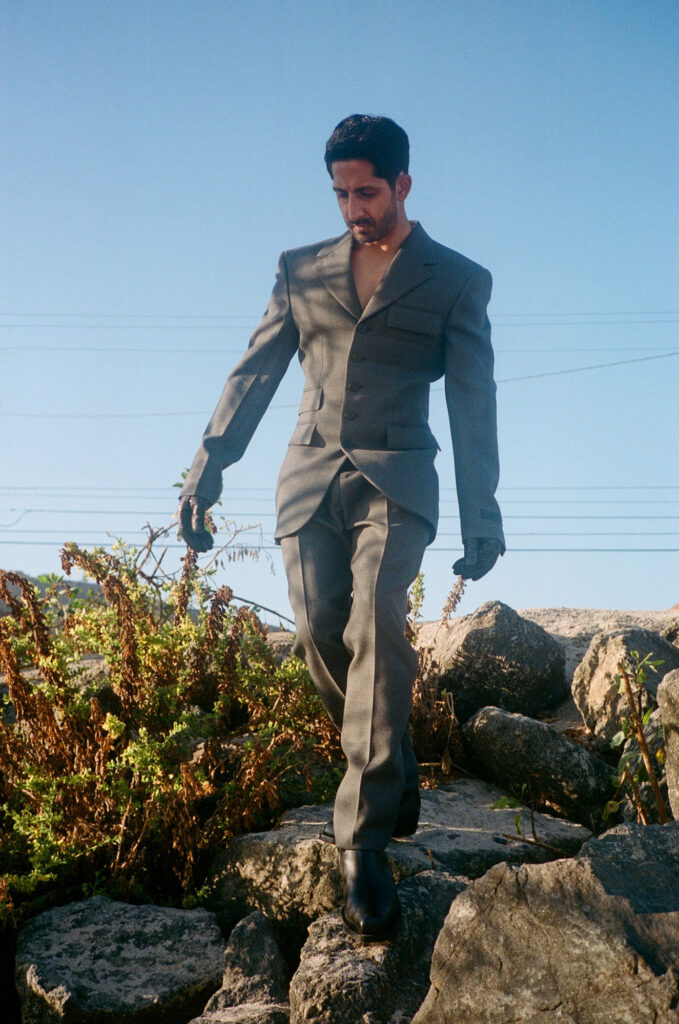
Suit, Gloves, Boots : VERSACE F25
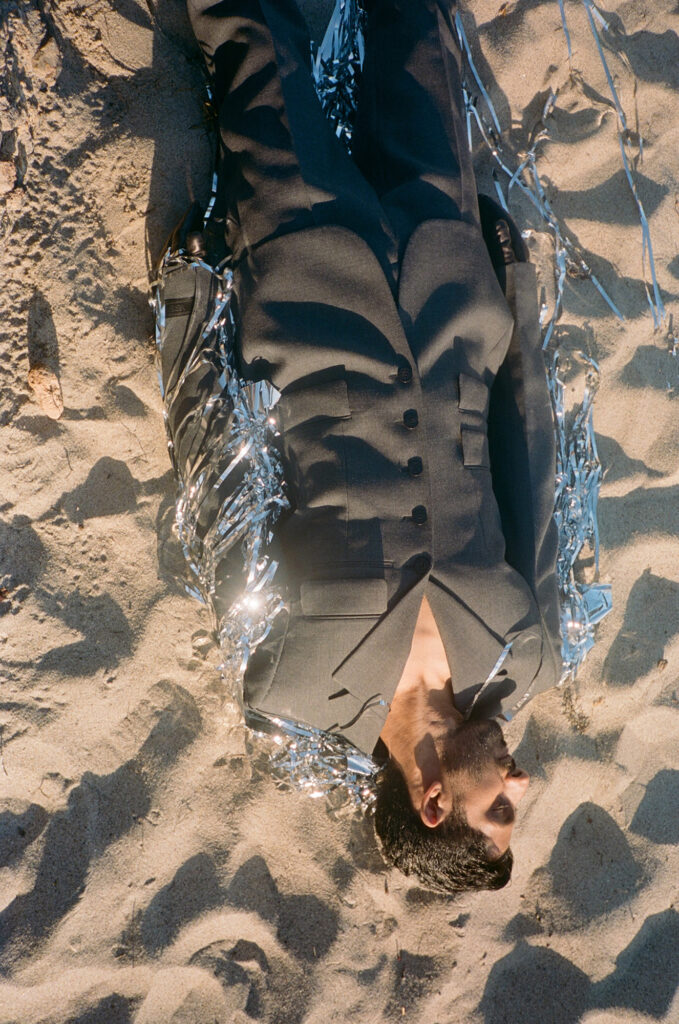
How does this episode play into the trajectory of the show as a whole?
One of the great things about season 3 is it cranks up the intensity. We start around the Lumi IPO and what that means for the bank, and then we’re completely off to the races. Episode 1-3 builds and then episode 4 is this half-way point of the series but also where the show turns up the pressure in a way we’ve never seen. In one sense you could look at it as a completely isolated episode which follows Rishi but it also says something about the series as a whole. It portrays how all-consuming some of these individuals are when it comes to work and life, and whether there’s even a distinction between the two? Is it the addiction to money that drives them or is it placed around their own insecurities? The way this episode and the show in general explores masculinity is such a central theme too, whether that’s Rishi who begins to question his own moral compass, or someone like Robert who’s going further down a dark hole. Eric’s marriage has collapsed and has a drinking problem, Henry Muck who represents the upper echelons of British society and what that says about class and entitlement.
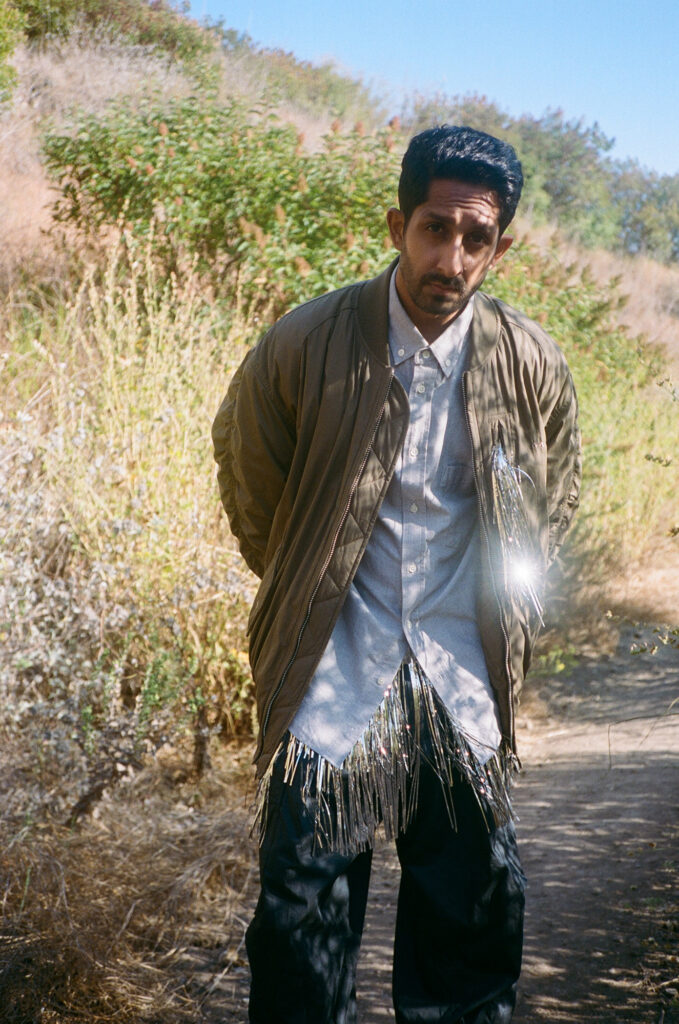
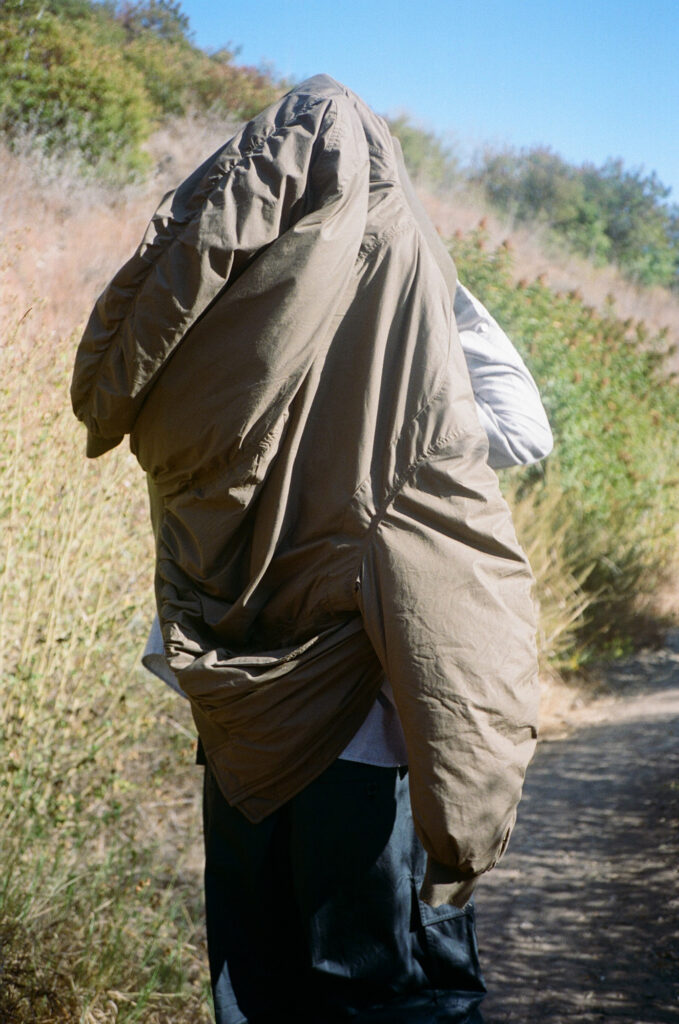
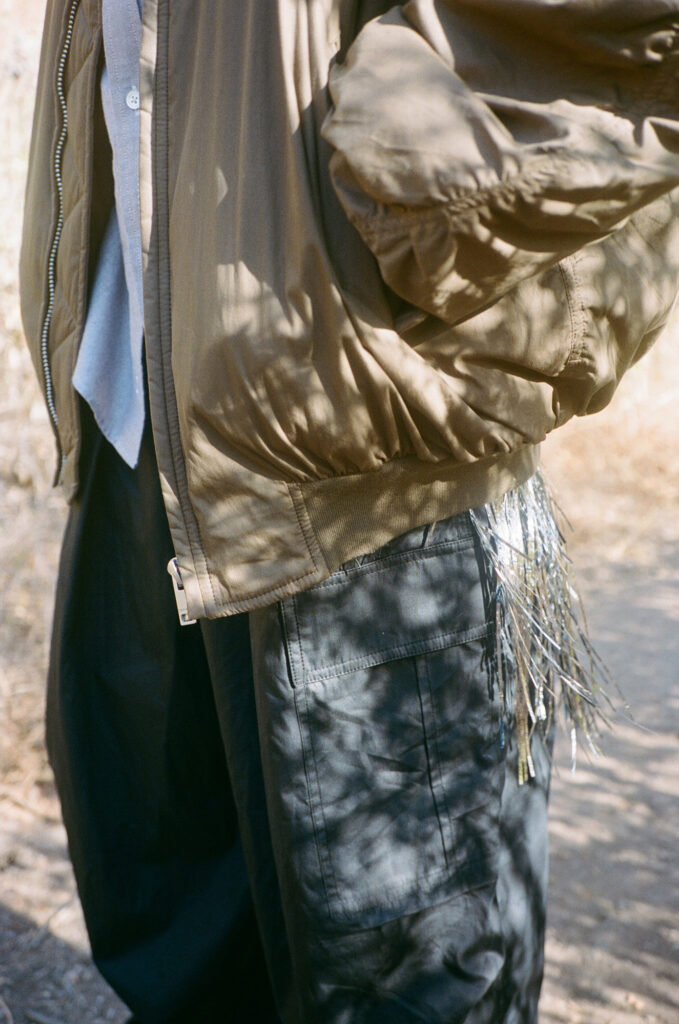
Bomber Jacket , Shirt , Cargo Pants : Isabel Marant F25
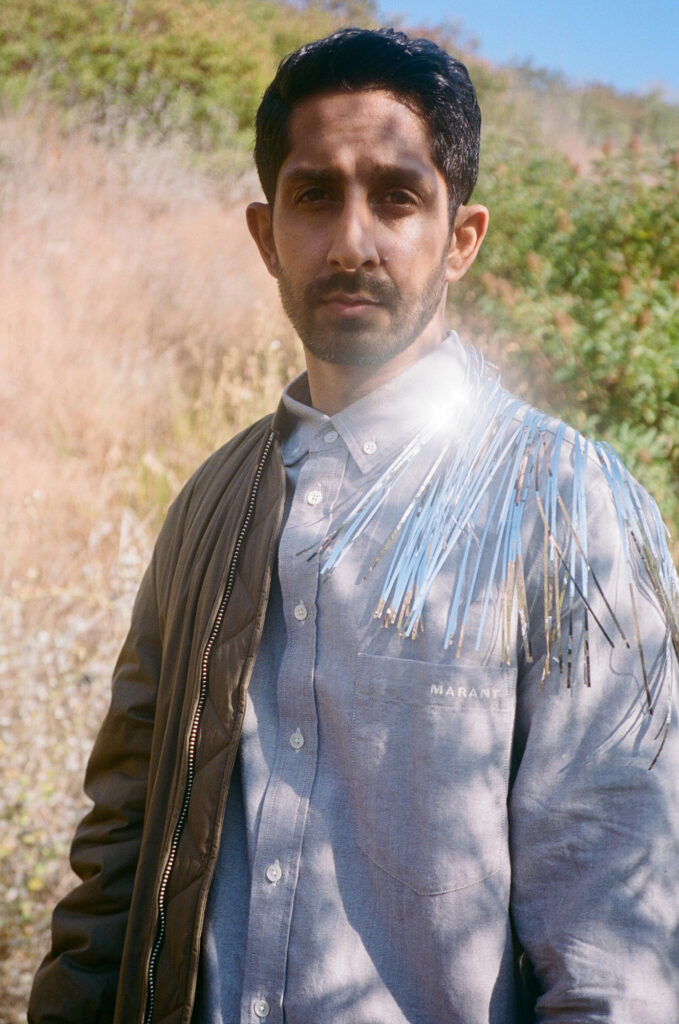
Do you see any similarities between yourself and your character? Do you see any differences?
To be honest It’s a question I’ve asked myself a lot. On the surface I would say no. I don’t think of myself as particularly ruthless as he is. On the one hand Rishi is a super-alpha, frat-boy, lad who is aggressive and leads with his chest out. For me, I can relate to his confidence. I’ve always been someone who’s felt secure within myself without worrying about outside opinions or judgment. I think Rishi holds a similar quality but with a lot more bravado. I think the question around our own similarities and differences is never more prevalent than today. We all have a shifting sense of who we are, and wear different hats in different environments, playing a different version of ourselves on any given day. So sometimes I watch Rishi and can relate to aspects of what he’s going through. Episode 4 explores that othering feeling you get in certain situations and I as Sagar know what that feeling is, especially working in an industry where there’s a small percentage of people who look like me. How does that affect you? How does it alter the way you navigate through? I think Rishi is going through the same thing.
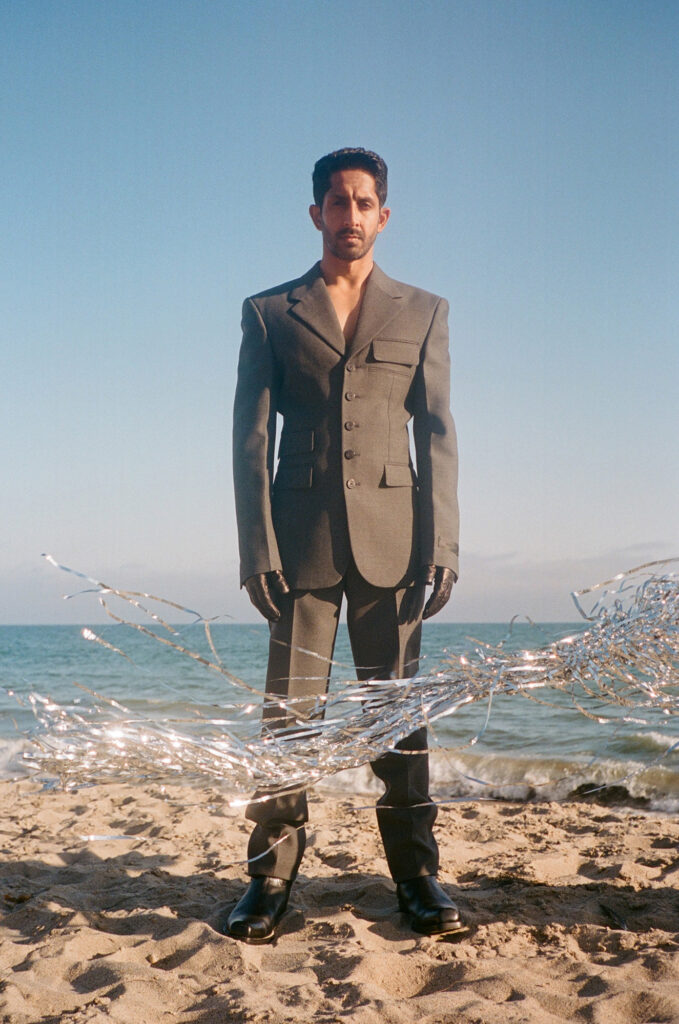
Suit, Gloves, Boots : VERSACE F25

How do you think Industry comments on the contemporary corporate world?
One of the main themes Industry explores in relation to this is identity. Who are we at work and is this the real version of ourselves? Or, as I mentioned before, are we just wearing different hats to be who we need to be. That makes us look inwards to really evaluate our true self. In a more overall sense, banking gets a bad rep. There’s a stigma attached to them being money-centric, selfish and merciless, and almost cold-blooded. Aspects of that could be true but it’s more important to assess why that behavior is at its core. Is it the fault of the industry with its cut-throat approach and greed or do we also look at ourselves and take responsibility for our own actions whether that’s treating people with respect and setting boundaries? If we take it back to season 1 episode 1 – the death of Hari speaks volumes about the pressures of that environment. Post 2008 financial crash there’ been a lot of change in financial regulation and hopefully that’s led to a less toxic work-place that allows people to evolve and grow personally and professionally, and in a healthier way.
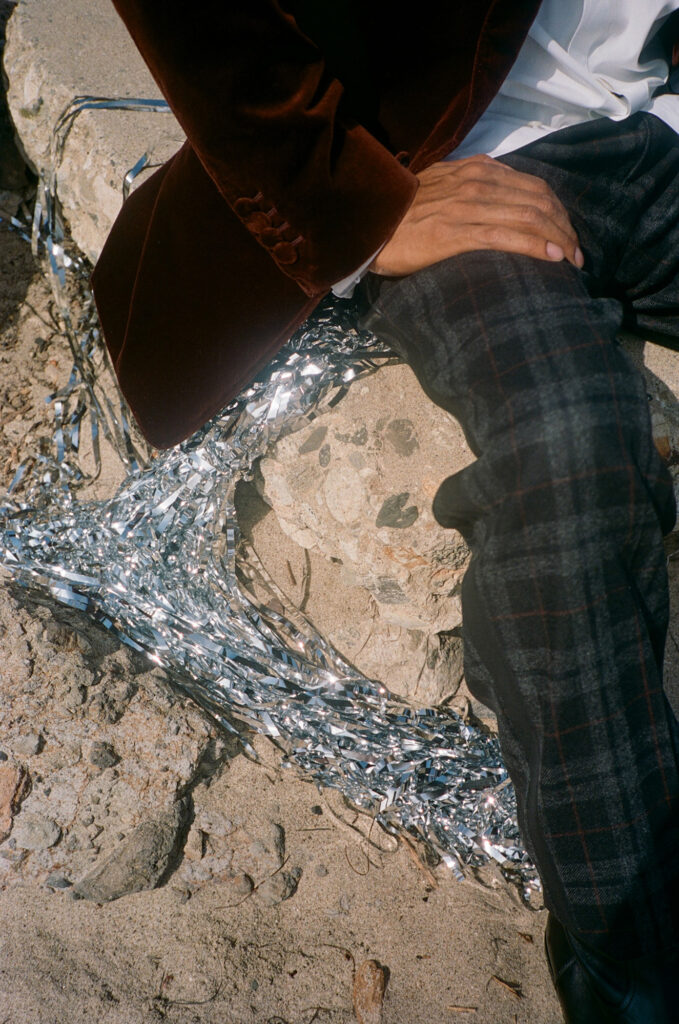
Suit & Shirt : DUNHILL F25
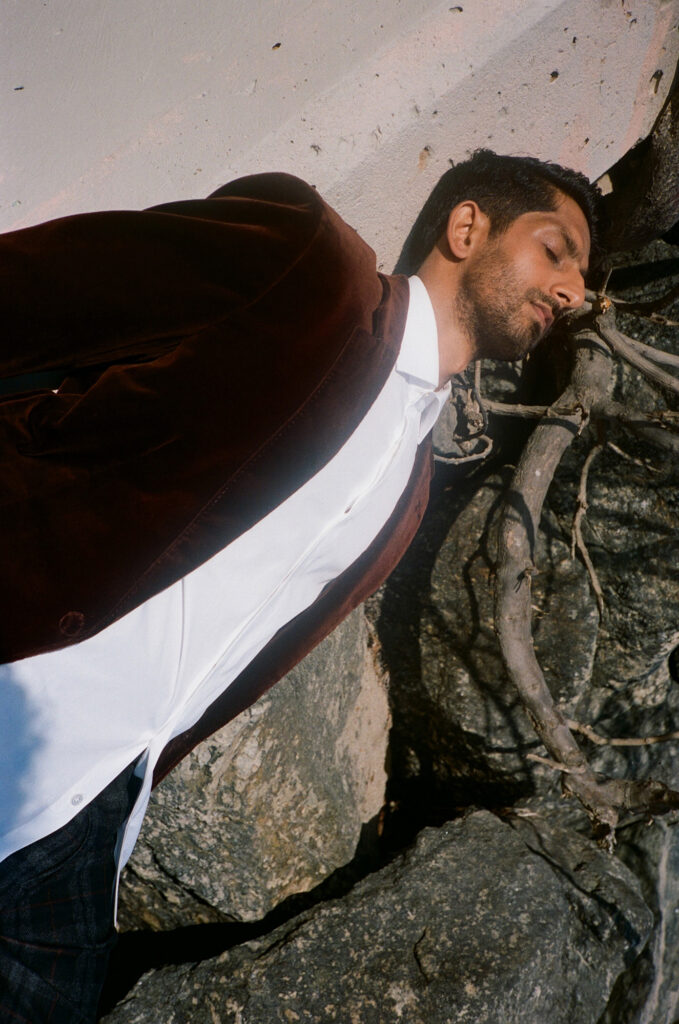
We see Rishi fail to balance his personal life with his professional life. How do you think this impacts his relationships with the other characters on the show?
Anraj is the first relationship that comes to mind – I think Rishi enjoys having him around and despite the teasing bordering on bullying, there’s a wonderful, sweet, brotherly connection between them. Unfortunately, with Rishi’s personal and professional woes getting the better of him, I feel the relationship with Anraj suffers in a different way to with his wife. He’s always relied on Anraj’s loyalty, but as episode 4 and beyond shows us, even Rishi’s most abhorrent actions have consequences. By the end of episode 4 he’s lost not just a colleague, but a friend and a mentee which I think hits him harder than he would’ve expected. The other obvious impact is Rishi’s relationship with his wife who had taken so much for so long. His inability to be there for Diana and their new-born has taken a massive hit due to his downfall. That being said, of all the characters she is the only one who helps Rishi see sense. She calls him out in a way nobody else can and by the end Rishi is questioning his own morals and the type of man he is and wants to be going forward.
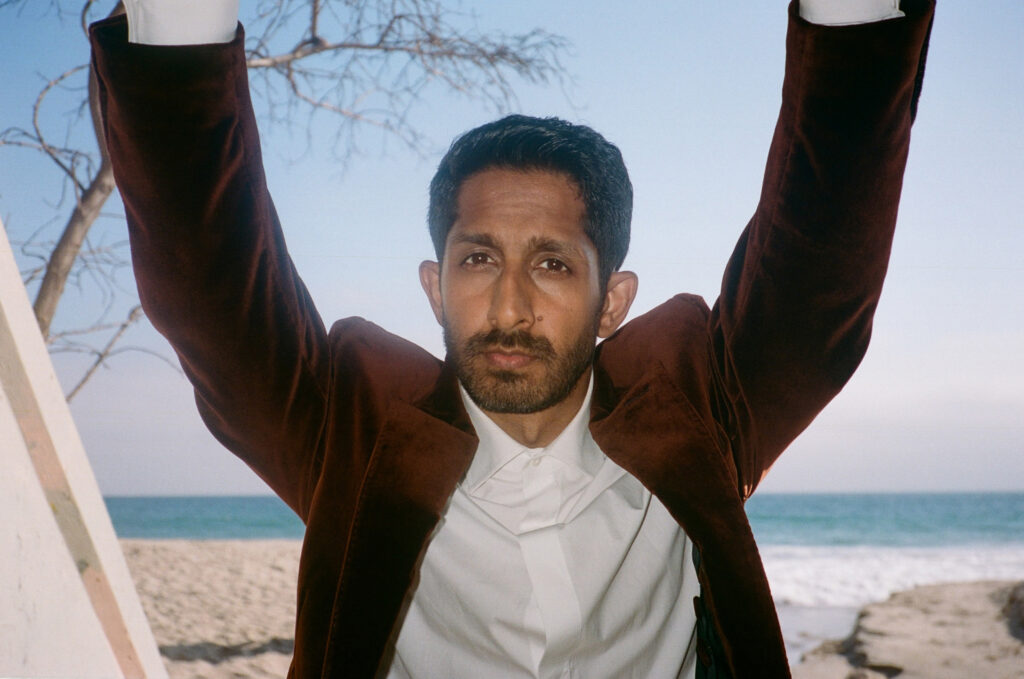
Suit & Shirt : DUNHILL F25
In many ways, Rishi’s character reflects the increase in South Asian representation throughout the corporate world. How does it feel to be a part of this cultural shift?
Being lucky enough to be part of any positive cultural shift is flattering. If we’re making a show that sends a message and has an insight into a group of people who audiences connect with then we’ve hopefully done our job. For me personally, it goes a step further because characters like Rishi are seldom seen on film or television where a South Asian actor is playing someone who is sexualised, or comes at things from a position of strength, someone who gets to be this three-dimensional character who audience both love and hate, sympathize with but also loath at the same time. I’ve grown up in London where there is a larger proportion of South Asian men and women who have gone on to work in finance. They come from second generation immigrant families where stability and providing for your family are at the forefront of the community and finance provides a lucrative salary that ticks those boxes. If I can provide a snapshot of one of those characters then I’m more than happy to take on that responsibility provided it’s done in an honest and truthful way, which Mickey and Konrad have written beautifully.
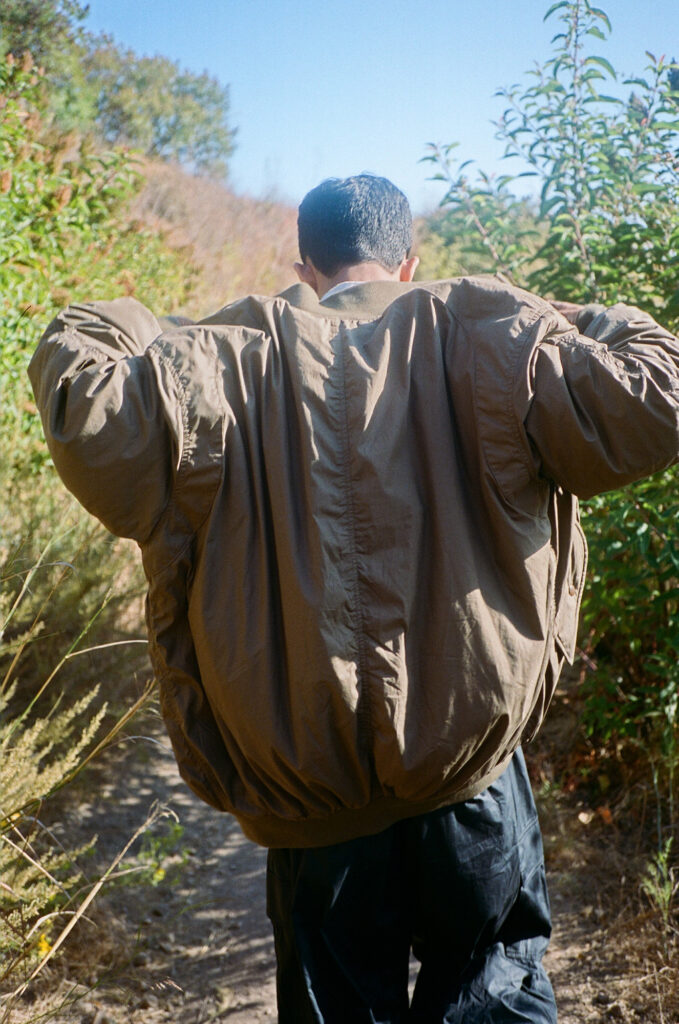

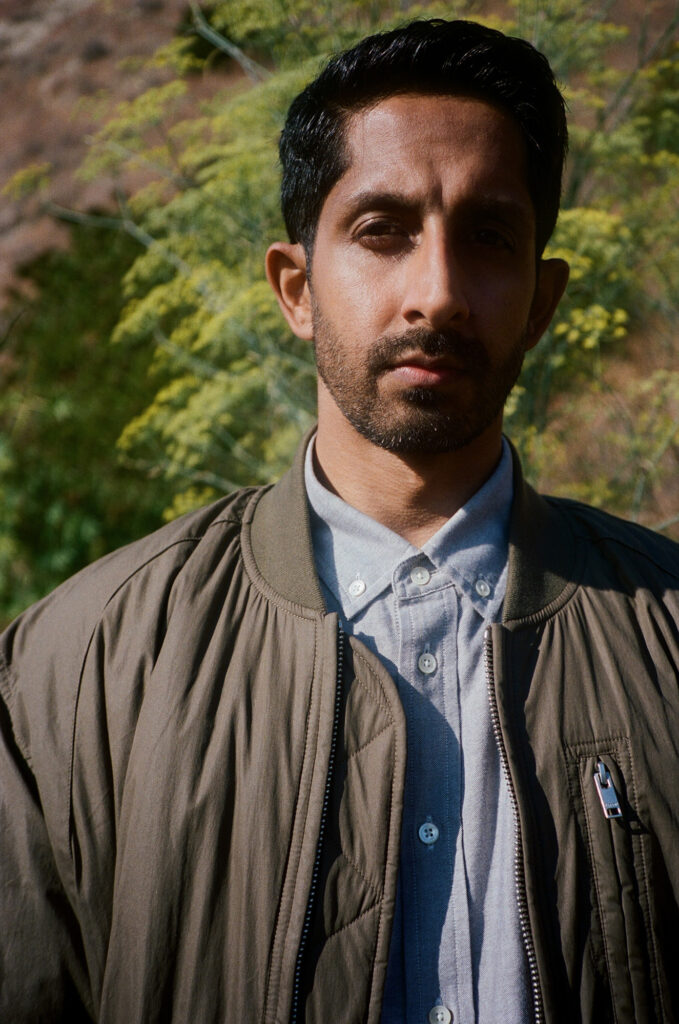
Bomber Jacket , Shirt, Cargo Pants: Isabel Marant F25
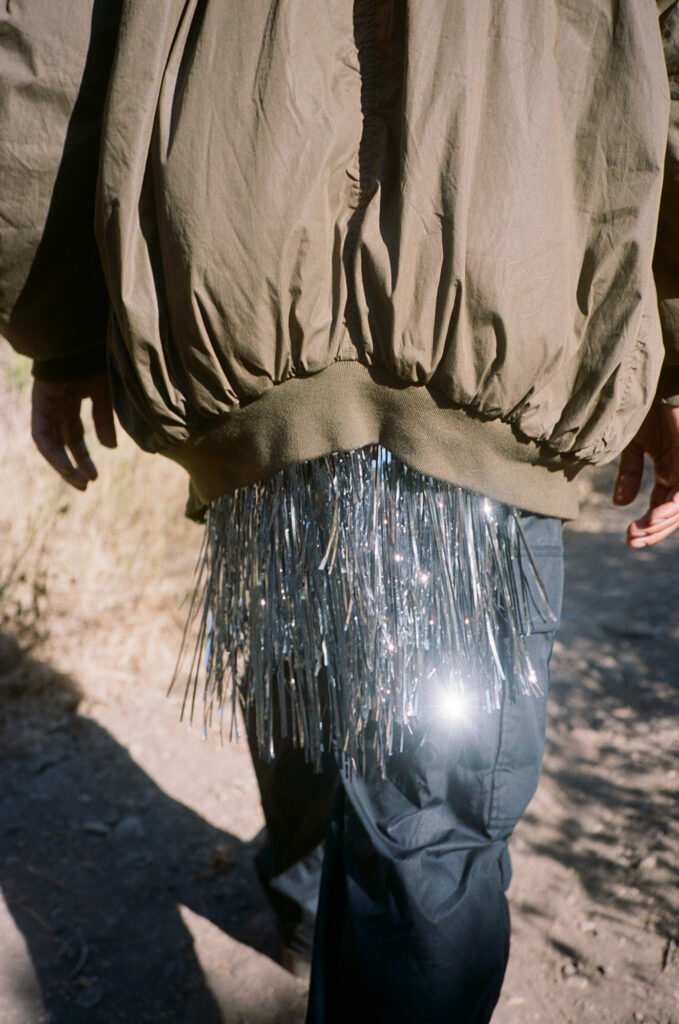
Where do you see Rishi heading as a character?
That might be a question above my pay grade! It’s interesting, I think where we leave Rishi by the end of the season 3, ultimately leave two scenarios in my opinion – He either completely changes his ways and makes a drastic transformation to become a better person, or he goes even further off the rails which I fear could be really really bad for him…but who knows, it may make for compelling viewing!
Where do you see yourself heading as an actor?
That’s an even tougher question! And the truth is I don’t know. If I can continue to be an actor who is part of great projects, telling great stories and playing three dimensional characters then that’s all I can ask for. I’ve been lucky enough to be part of some amazing projects whether that was in The Spoils at The Trafalgar Studios opposite Jesse Eisenberg, or getting my break in The Good Karma Hospital on nITV, and now I get to play someone like Rishi who became this fan-favorite, and the response to him has beyond my wildest dreams compared to where the character began. I’d love the opportunity to play someone completely different to Rishi. Maybe a romantic comedy? In a similar vein, you don’t see people like me as the object of desire in those films so if I get the opportunity to do something where I can help break stereotypes and shift culture, then that’s where I’d like to see myself heading! Producers, hit me up!
As a creative, where do you draw your inspiration from?
As cliché as it sounds, the inspiration is everywhere. It’s living life day-to-day, experiencing all facets of your relationships, your experiences, your fallouts, your happiness, your obstacles. Otherwise what are you drawing on for the work? When you take on a character you want to be able to reflect on those experiences, even if not yours directly, but something that allows you to connect to your character. For me, my life will inspire work. Which is why I think as actors we get better as we get older. There’s so much more richness to what we’ve gone through and lived, both good and bad. It’s probably why we hear about so many child actors who go off the rails because their reality is so up in the air and they’ve been thrown into the spotlight without having time to live a life and shape their identity and grow as people. I think I’m also the type of creative who tries to keep things as simple as possible. When it comes to the work there are ultimately two types of actors – convincing, and not convincing (Tom Hardy quote!). That’s really it. The rest is more about the deep diving you want to do for yourself to stay inspired, or your own school of thought when it comes to preparation. Hopefully whatever my method is, which varies from project to project, is enough that audiences respond to the performance, at which point I can feel at peace with it.
Photography
Dane Vaughn
Creative Director & Fashion Editor
Deborah Ferguson
Interview
Laasya Gadiyaram
Grooming
Fashion assistant and Web Layout
Katharina Grabinger
Thank you
Independent PR & HBOMAX